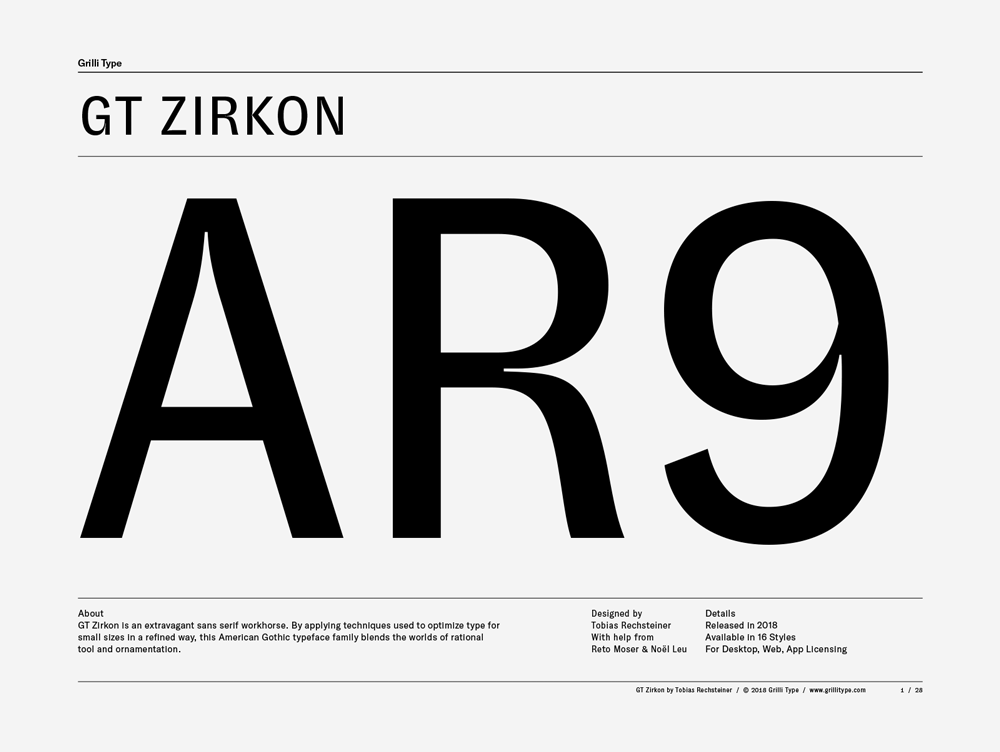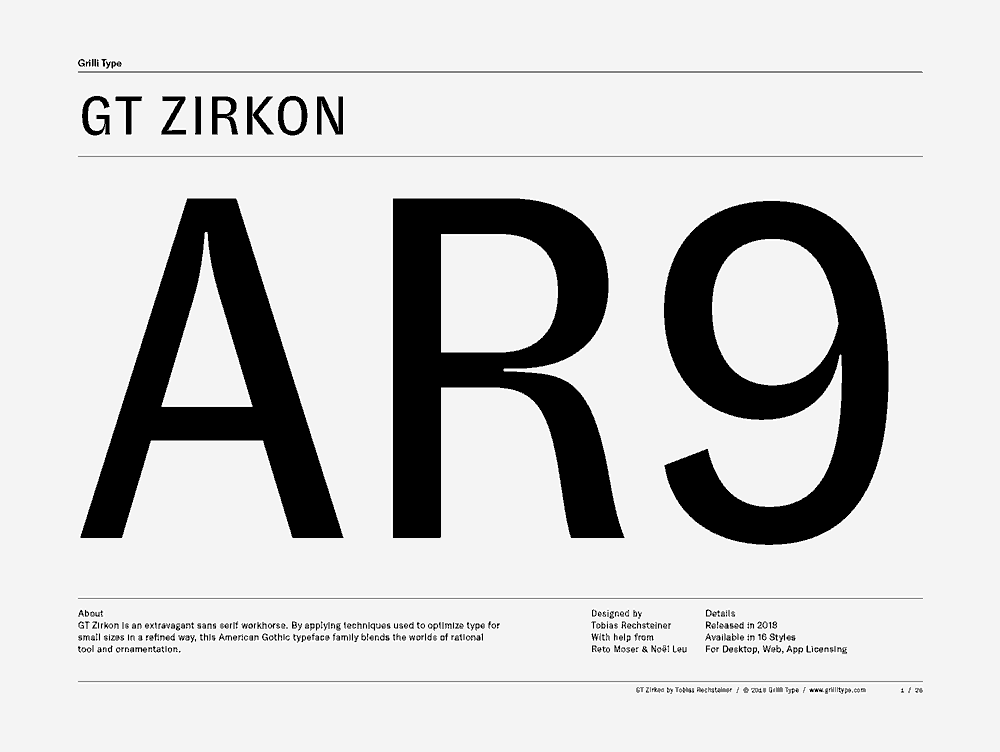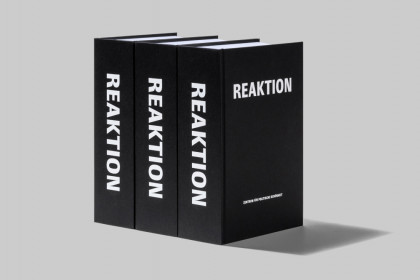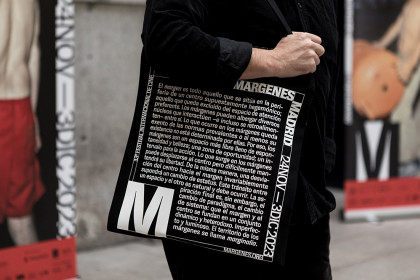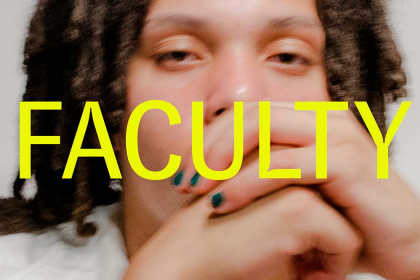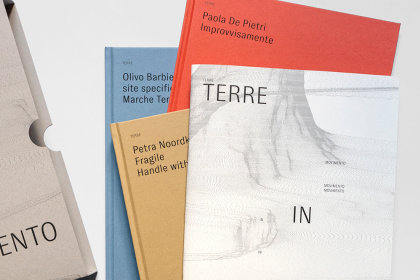GT Zirkon
Family overview
- Ultra Light Italic
- Thin Italic
- Light Italic
- Book Italic
- Regular Italic
- Medium Italic
- Bold Italic
- Black Italic
- Ultra LightMineral classification schemes and their definitions are evolving to match recent advances in mineral science.
- Ultra Light ItalicOn the Isle of Skye near Ireland, is a chapel dedicated to St. Columbus, and on the altar is a round crystalline blue stone held sacred to weather and health.
- ThinThe abundance and diversity of minerals is controlled directly by their chemistry, in turn dependent on elemental abundances in the Earth.
- Thin ItalicZirconium is a mineral belonging to the group of nesosilicates.
- LightYellow, orange and red zircon is also known as “hyacinth”, from the flower hyacinthus, whose name is of Ancient Greek origin.
- Light ItalicThe dark brown to black color observed in most Zircon crystals is caused from iron oxide impurities.
- BookConnected to internal radiation damage, these processes partially disrupt the crystal structure and partly explain the highly variable properties of zircon.
- Book ItalicManly P. Hall and other students of esoteric wisdom have also noted that many ancient crystals were produced by ‘zodiacal formulae’ grown at specific times, when the sun, moon and planets were in special heavenly positions.
- RegularZircon is an important gemstone, with several color forms used in various forms of jewelry.
- Regular ItalicCurrently, zircons are typically dated by uranium-lead (U-Pb), fission-track, cathodoluminescence, and U+Th/He techniques.
- MediumNew York University chemists have created three-dimensional DNA structures, a breakthrough bridging the molecular world to the world where we live.
- Medium ItalicZirconium is a chemical element with symbol Zr and atomic number 40.
- BoldRadioactive dating shows that the zircon crystals were formed more than 4 billion years ago.
- Bold ItalicRecent experiments, for example, have shown that crystals grow five times faster when their supersaturated solution is subjected to frequencies of 10 to 100 cycles a second.
- BlackCommercially valuable minerals and rocks are referred to as industrial minerals.
- Black ItalicThe English word “zircon” is derived from “Zirkon”, which is the German adaptation of this word.
- Settings
Typeface information
GT Zirkon is an extravagant sans serif workhorse. It blends the worlds of rational tool and ornamentation by applying techniques used to optimize type for small sizes in a refined way.
Typeface features
OpenType features enable smart typography. You can use these features in most Desktop applications, on the web, and in your mobile apps. Each typeface contains different features. Below are the most important features included in GT Zirkon’s fonts:
- SS01
- Alternate Arrows
Volume ↗
- SS02
- Alternate f
Refraction
- ONUM
- Oldstyle Figures
0123456789
- SMCP
- Small Caps
Ore Deposit
Typeface Minisite
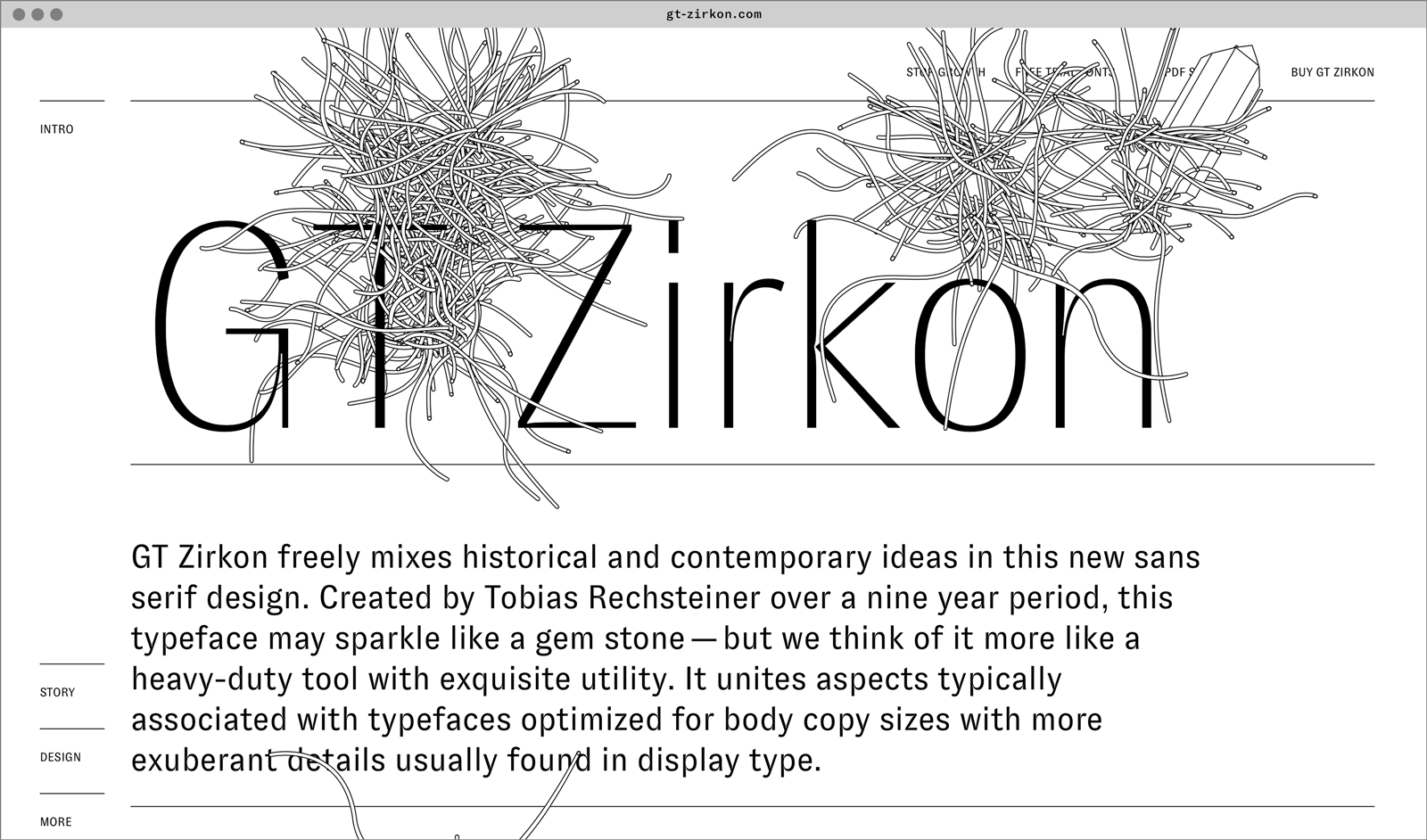
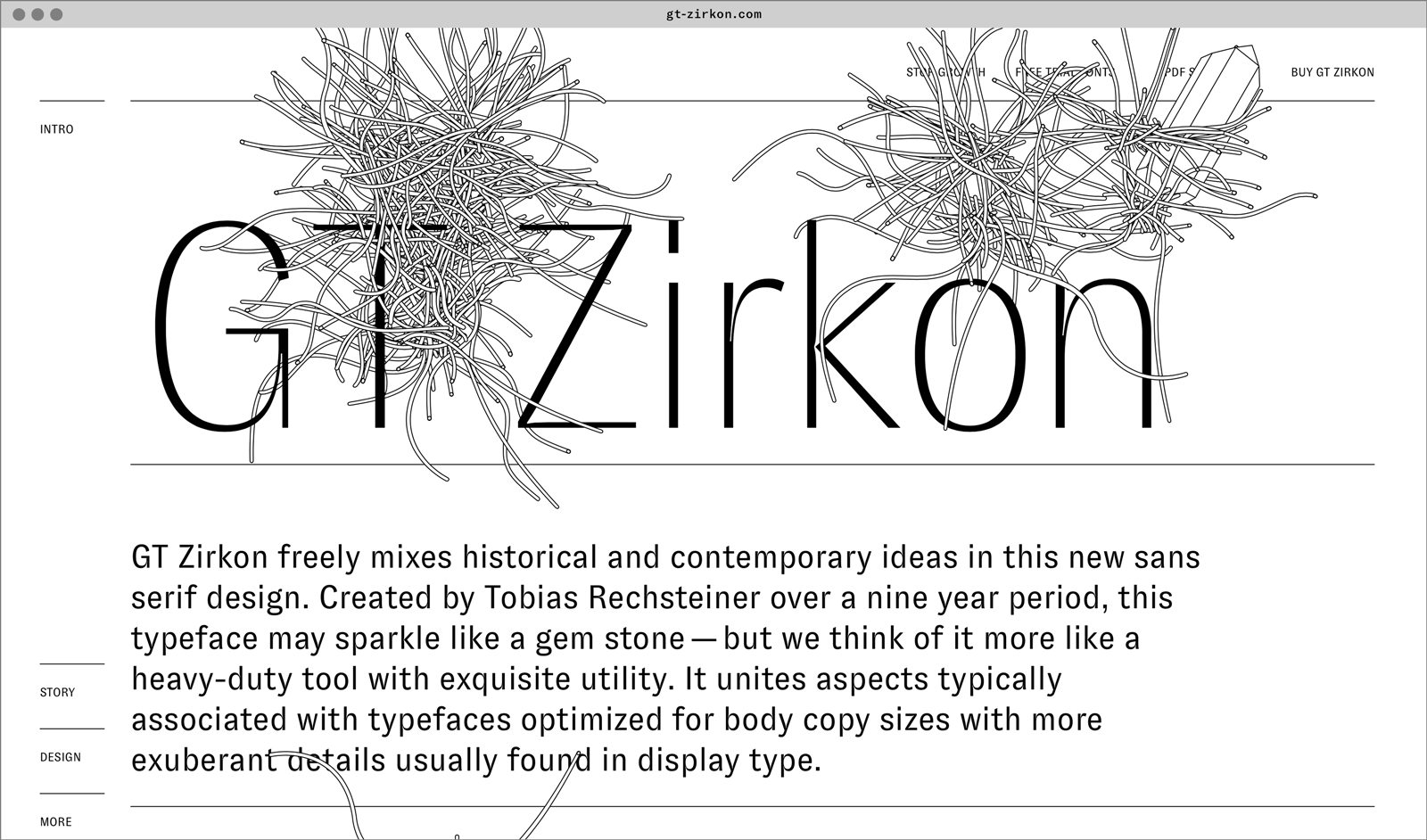
- Visit the GT Zirkon minisite to discover more about the typeface family’s history and design concept.
GT Zirkon in use
